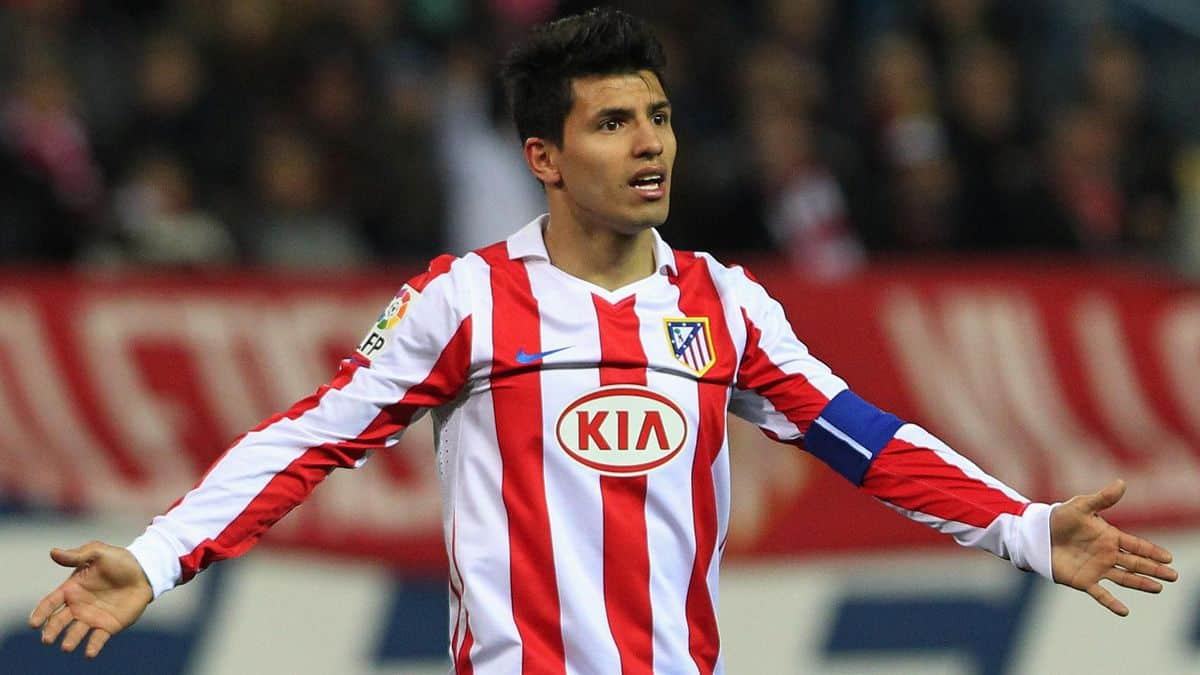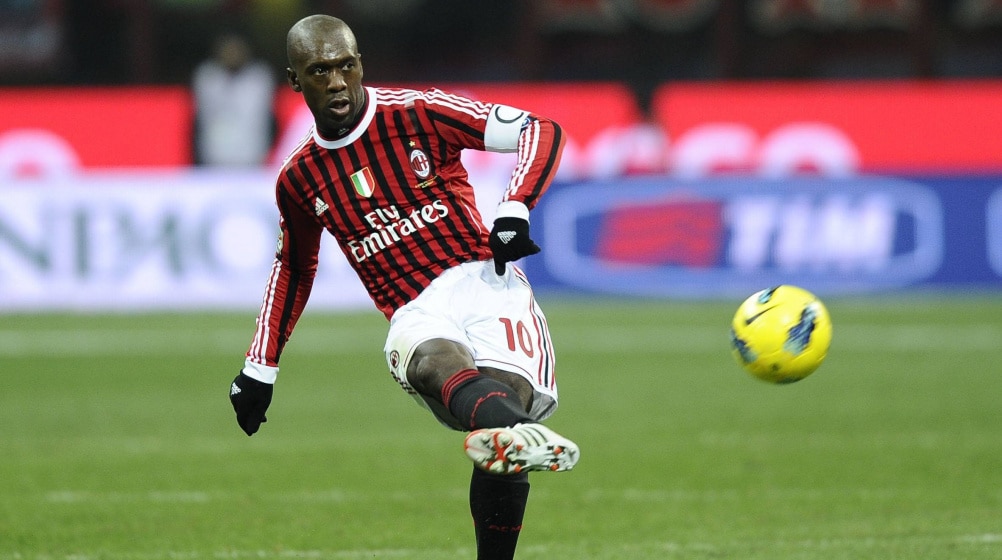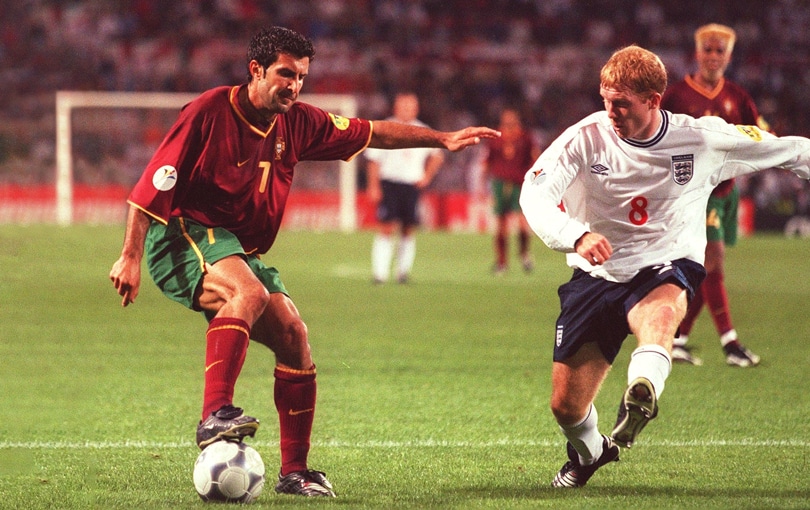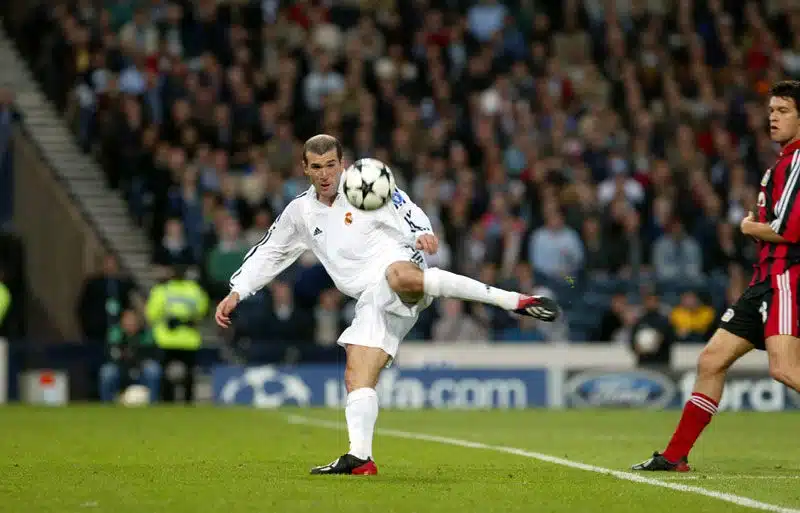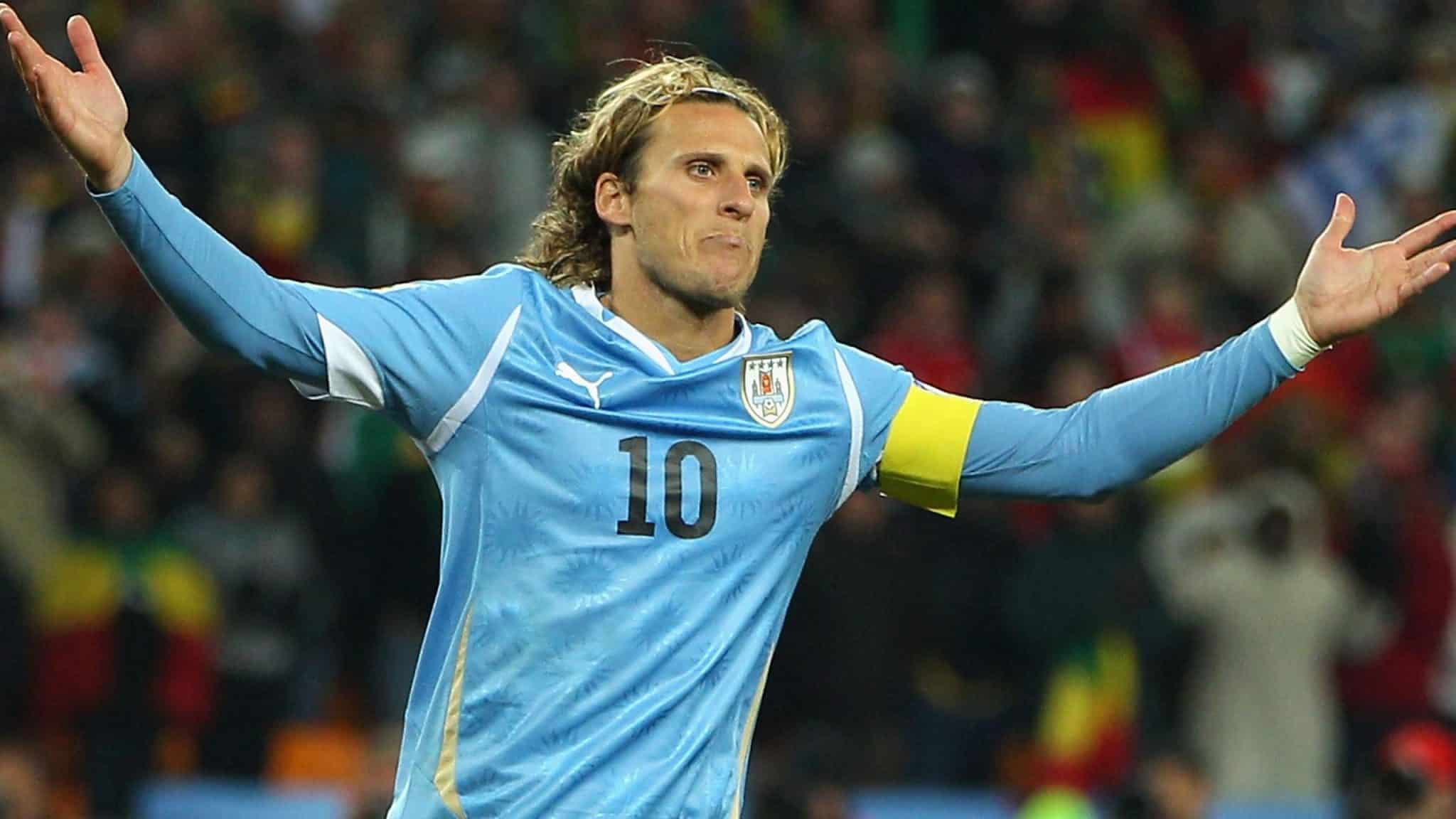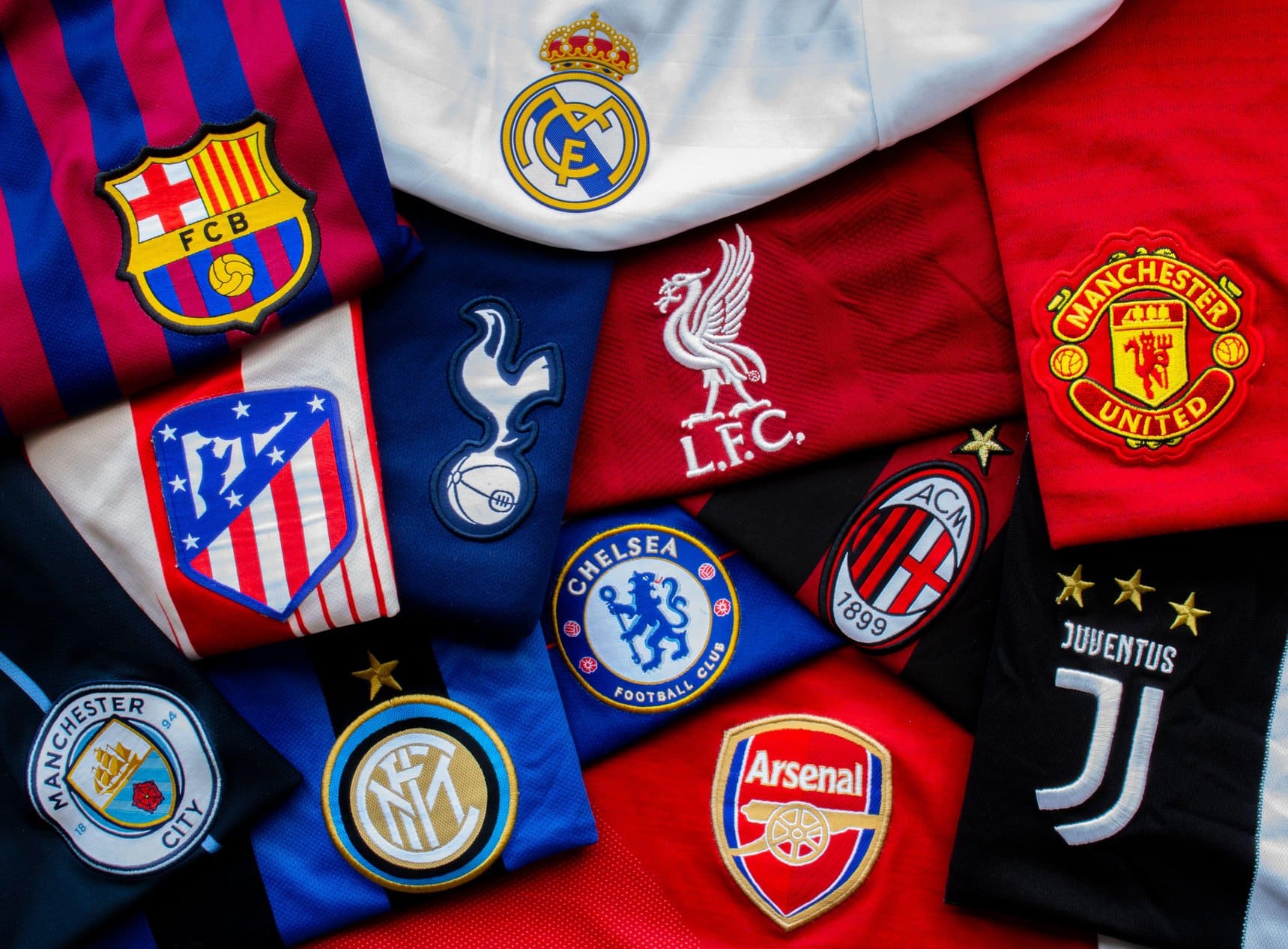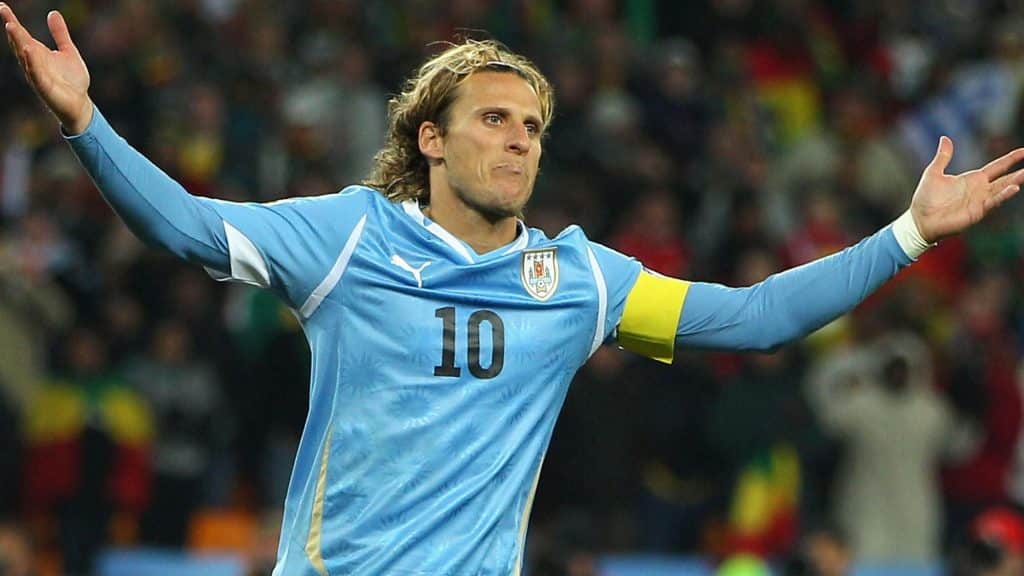
Football fans all over the world will reminisce about some of the great legends of the game such as Diego Maradona, Pele, Zinedine Zidane and Ronaldo Nazario and the impact they have had on the FIFA World Cup.
But as special as those icons are, the World Cup has helped produce many inspiring stories that have written lesser known players into footballing history forever. To celebrate these players, we have compiled a series of World Cup cult heroes below who are often fondly remembered for what they achieved on the biggest international stage.
Fabio Grosso
The hero of Italy’s 2006 World Cup victory came from an unlikely source in left-back Fabio Grosso. “Gli Azzurri” manager Marcello Lippi started Grosso in the Italian backline and it is safe to say his decision to do so paid off.
Grosso played a key role for Italy in the knockout rounds of the tournament. The former Palmero man won a last minute penalty against Australia in the Round of 16 which Francesco Totti converted, sending the Italians into the quarter-finals. The defender’s impact did not end there, with Grosso scoring a 119th minute extra-time winner against Germany in the semi-finals. His iconic curling strike past German goalkeeper Jens Lehmann sent Italian fans into euphoria.
To top off his already impressive tournament, Grosso scored the winning penalty in the final shootout against France, writing his name into footballing history forever as Italy won their fourth World Cup. Grosso is admired all across Italy for his heroics and was even awarded The Order of Merit of the Italian Republic, which is the highest accolade the Republic gives out.
Beyond the World Cup, Grosso went on to play for the likes of Inter Milan, Lyon and Juventus before hanging up his boots in 2012. Now 46 years old, the Italian was most recently in charge of Ligue 1 side Lyon, before getting sacked.
Tim Krul
We have witnessed some incredible penalty shootouts at the FIFA World Cup, but there are not many that top the Netherlands 4-3 victory over Costa Rica in the 2014 quarter-finals. As the game entered the 120th minute, Dutch coach Louis van Gaal decided to substitute goalkeeper Tim Krul onto the pitch for Jasper Cillessen purely for the upcoming penalty shootout.
In hindsight it was a genius tactical move by van Gaal as Krul managed to save two of Costa Rica’s penalties and send the Netherlands into the semi-finals of the tournament. Krul remains the only goalkeeper to ever be subbed on solely for a penalty shootout in World Cup history. Speaking after the victory van Gaal explained his decision.
“But as I’ve explained, every keeper has specific qualities. Tim has a longer reach and a better track record with penalties than Cillessen. We had discussed it with Tim. He knew about their penalties because he needed to be prepared. It worked out. If it hadn’t, it would have been my mistake.”
Krul has since had a successful goalkeeping career in England with Newcastle United, Norwich City and most recently Luton Town.
Paolo Rossi
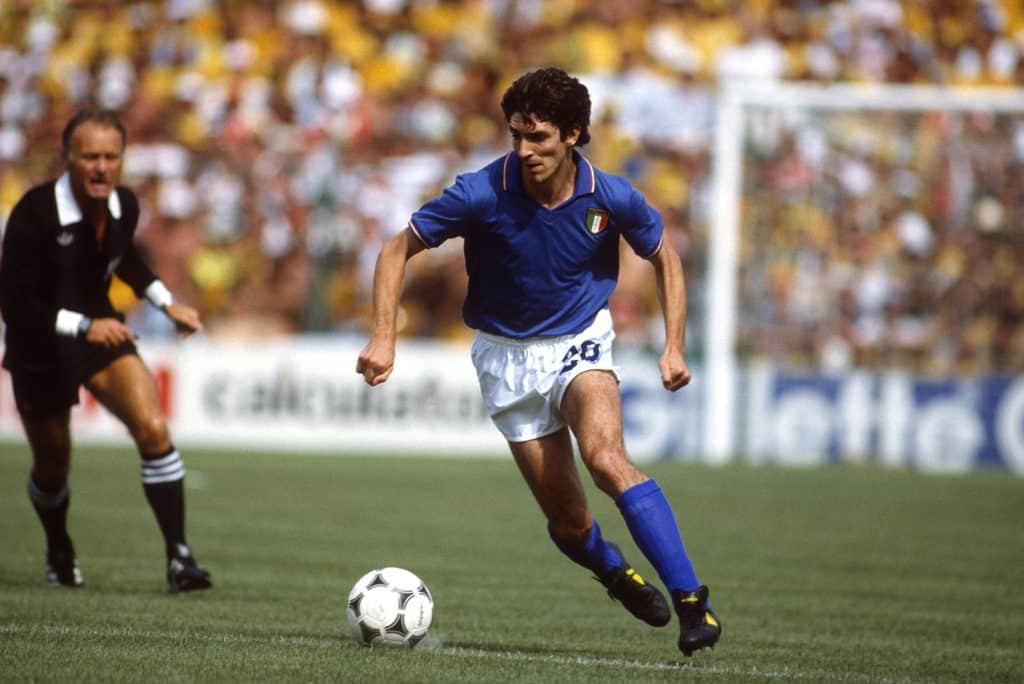
Rossi was not your typical striker at the time as he was quite small and frail. Despite this, the striker won back-to-back golden boot awards in Italy with Vicenza. Italy called Rossi up for the 1978 World Cup, where he scored three goals, but it is his heroics four years later which wrote him into Italian footballing history.
In 1980, Rossi found himself caught up in the famous Totonero match-fixing scandal in Italy while playing for Perugia which saw the forward banned from football for three years. Rossi had his sentence shortened to two years and in 1982 Juventus decided to sign him. Despite his lack of playing time in the past two years, Rossi was controversially called up to the Italian squad for the 1982 World Cup in Spain. The media in Italy criticised this decision heavily as Rossi was deemed unfit and not good enough to play for his country.
After the opening three games, it looked like the media were correct as Rossi failed to make an impact as he lacked fitness and looked unbothered on the pitch. Everything changed when Italy faced Brazil for a place in the semi-finals of the tournament in what is remembered as one of the greatest games in World Cup history.
Rossi scored a memorable hattrick against what is regarded as one of the most talented Brazil sides to grace the football pitch as Italy won the game 3-2 and advanced to the semi-finals. Things only got better for Rossi as he scored a brace in Italy’s 2-0 victory against Poland in the semi-finals.
His hero status was secured in the final of the tournament as Italy beat Germany 3-1, with Rossi scoring the opening goal of the game. Rossi finished the tournament as top goalscorer and won the Golden Boot.
Oleg Salenko
The 1994 FIFA World Cup was a tournament with a number of memorable players and iconic moments, but perhaps the most underrated story from the tournament is that of Russian forward Oleg Salenko. The former Valencia and Rangers forward only played eight games for Russia, scoring six goals, with five of those strikes remarkably coming in one match.
Salenko scored an incredible five goals against Cameroon in a 6-1 victory, setting a World Cup record for the most goals in a single game – a record that still stands to this day. The now 52 year old also scored one more goal in a 3-1 defeat to Sweden, meaning he finished the tournament as joint top goalscorer alongside the legendary Bulgarian striker Hristo Stoichkov despite only playing three games. As of 2022, Salenko is the only player ever to win the Golden Boot award on a team eliminated from the World Cup finals at the group stage.
After retiring from the game in 2001, Salenko went on to manage the Ukraine national beach football team in 2003, before distancing himself from the sport to focus on his business ventures.
Josimar
Brazilian right-back Josimar was uncapped by A Seleção when he was selected to be a part of the 1986 FIFA World Cup squad. Josimar was not known outside of Brazil and was selected by coach Telê Santana purely as a back-up. The defender was swiftly called into action for Brazil’s final group game against Northern Ireland after first-choice right-back Édson picked up an injury.
Despite it being his debut for the national team, Josimar left football fans all over the world star-struck when he scored one of the greatest World Cup goals in history. A cannon into the top-left corner that left Northern Ireland’s goalkeeper Pat Jennings helpless. It only got better for Josimar as he also scored in his very next game as his goal helped Brazil dispatch Poland 4-0 in the round of 16. Unfortunately for Brazil, they would lose to France on penalties in the quarter-finals.
Josimar played for Botafogo until 1988 before moving to Spanish side Sevilla. The right-back returned to Brazil where he played in the lower leagues up until his retirement in 1997. Now 62 years old, Josimar is back at Botafogo as the assistant manager.
Diego Forlán
Uruguay forward Diego Forlán is fondly remembered by football fans for his outstanding performance at the 2010 FIFA World Cup in South Africa. The former Atlético Madrid and Manchester United player finished as joint top-scorer and was also awarded the Golden Ball as the tournament’s best player. Forlán helped Uruguay reach the semi-finals of the World Cup for the first time since 1970 with his impressive long-range goals. Uruguay’s No.10 was one of the few players at the tournament who was able to use the Jabulani ball effectively.
The Jabulani caused great controversy amongst players, with many criticising its unpredictability and awkwardness. As others worried, Forlán was relaxed in the Uruguay camp. He realised he could use the unpredictability of the Jabulani to his advantage. “Three months before the 2010 World Cup, Diego Forlan asked Adidas to send him a Jabulani ball,” former team-mate Sebastian Abreu said. “At Atletico Madrid he stayed after the training, practising moves with the ball in motion and free-kicks.”
Forlán’s months of preparation and practise certainly paid off as he scored goals against South Africa, Ghana, Holland and Germany at the tournament. After his iconic performances in South Africa, Forlán continued to play until 2018 before retiring at Hong-Kong based club Kitchee.
Roger Milla
Roger Milla is regarded as one of the trailblazers of African football. The Cameroonian forward used the World Cup spotlight to become one of the most loved and remembered players in football. His four goals at Italia ‘90 helped Cameroon reach the quarter-finals of the tournament, the furthest an African side has ever reached at a World Cup.
Along with his goalscoring, Milla’s celebration became iconic, enthusiastically dancing around the corner flag following every goal he scored. Despite being 38 at Italia ‘90, Milla featured four years later at the 1994 FIFA World Cup at the ripe age of 42. Not only did he just play, Milla also scored at the tournament against Russia, making him the oldest player to ever score at a World Cup.
Milla retired from football in 1996 and managed Cameroonian club Tonnerre between 2007-2011. Nowadays, Milla is an itinerant ambassador for African causes.
Just Fontaine
French striker Just Fontaine holds a remarkable World Cup record that may well never be broken. During the 1958 World Cup in Sweden, Fontaine managed to score an impressive 13 goals, the most ever in a single tournament. Known for his clinical finishing and his two-footedness, Fontaine had only played five games in as many years for France prior to being called up for the 1958 World Cup.
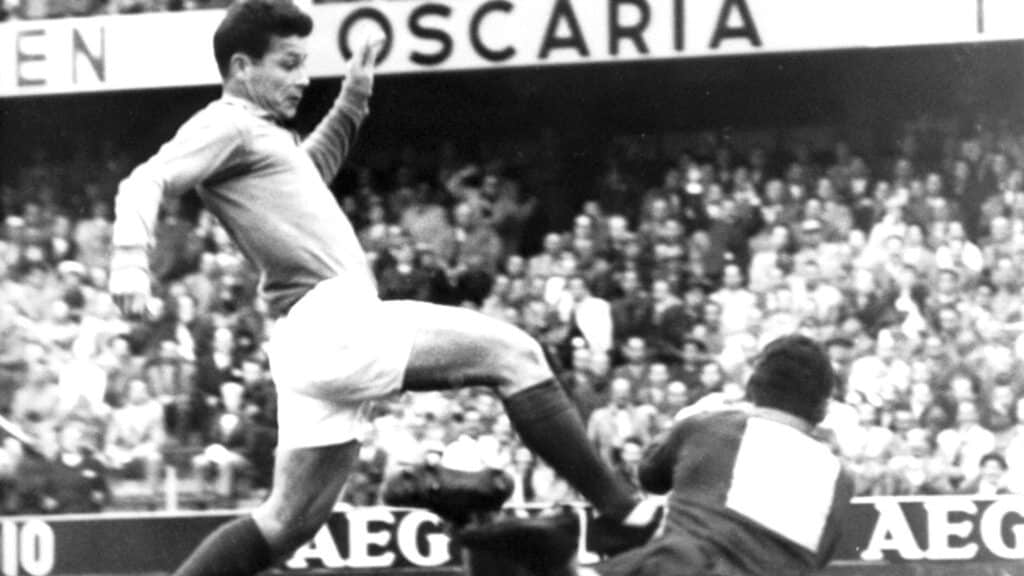
Remarkably, Fontaine scored in all six games France played in the tournament as they finished in third place, beating West Germany in the play-off match, in which Fontaine scored four goals. The striker also scored a hat-trick against Paraguay, braces against Yugoslavia and Northern Ireland and one goal against both Brazil and Scotland. In recent years, the closest any player has managed to matching Fontaine’s incredible record was Ronaldo Nazario in 2002, when he scored eight goals en route to Brazil lifting their fifth FIFA World Cup trophy.
Fontaine’s career was unfortunately cut short due to a knee injury, making him retire at just 28 years old. The now 89 year old managed the likes of France, Paris Saint-Germain and Morocco in the wake of his playing career. Fontaine is also partly responsible for founding the National Union of Professional Football Players in 1961.

